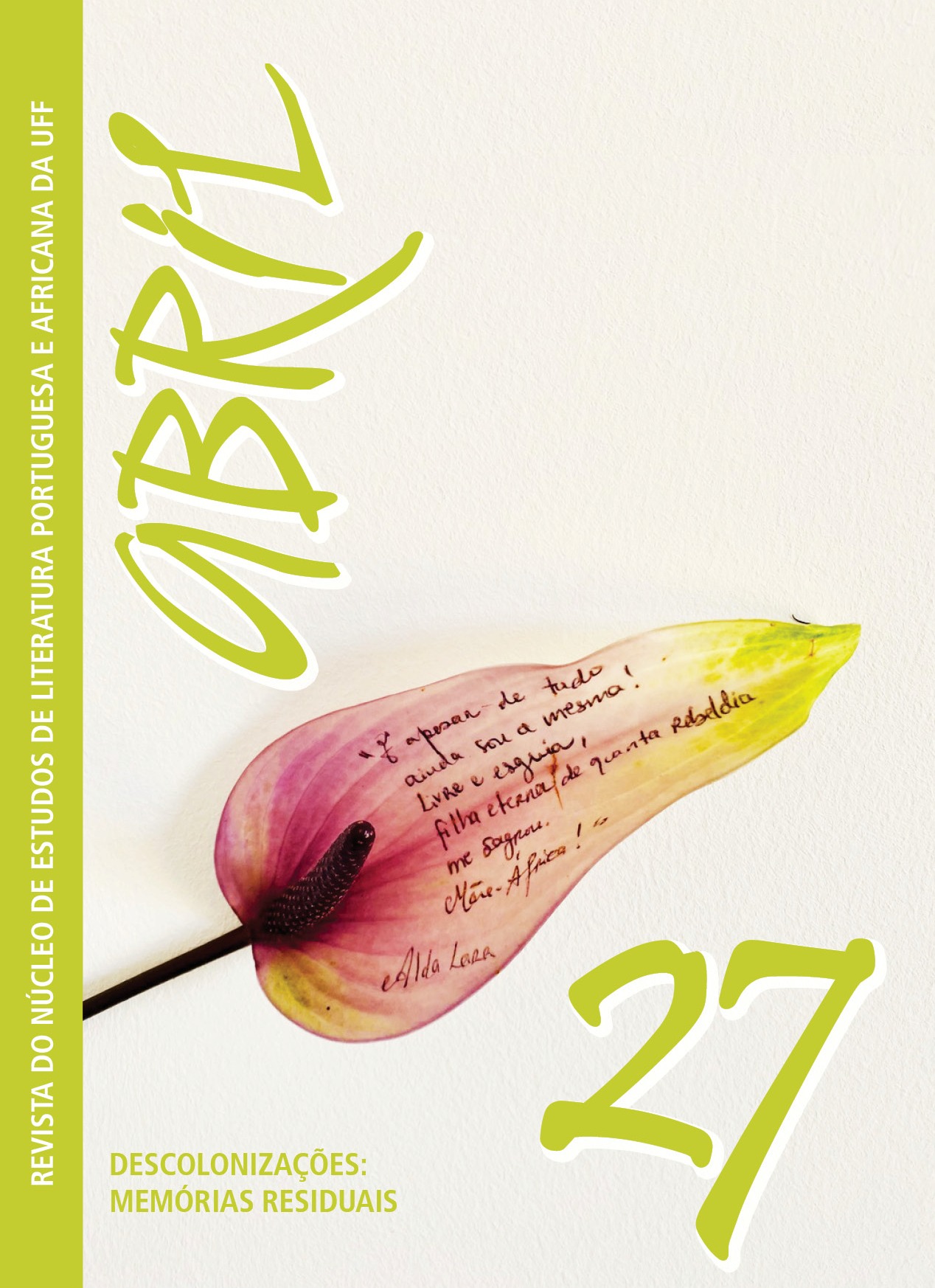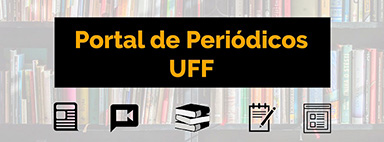Narrativity, memory and decolonization in the novel The return, by Dulce Maria Cardoso
DOI:
https://doi.org/10.22409/abriluff.v13i27.50259Keywords:
Memory, Returned, Decolonization, Dulce Maria CardosoAbstract
The paper is an analysis of The return, by Dulce Maria Cardoso, which emphasizes its memory linearity, besides discussing the relevance of memory in the process of decolonization and displacement of the so-called “returned” to Portugal, by the perspective of the character/narrator, the young Rui. The memory, in the face of all the fragmentation of the individual, also provides for literature a fragmented discourse of stories, previously known through the voices of the winners, present in the hegemonic discourse. Here are recovered the stories of a past full of gaps, which in contemporaneity are equipped with trauma and truth. The construction of the narrative of The return, by Dulce Maria Cardoso, is based on memory, from that which belongs solely to the author, withdrawn from her coexistence in Angola at the age of thirteen, until the vision of Rui, who has also returned to an unknown homeland. The novel is told on a mnemonic basis and reveals the subjects’ ability to live events and tell them at the same time or decades later, introducing to the contemporary Portuguese novel the particularities of a post-memory.
Downloads
References
BENJAMIN, Walter. O narrador: considerações sobre a obra de Nikolai Leskov. In: BENJAMIN, Walter. Obras escolhidas. São Paulo: Brasiliense, 1994. v. 1.
CARDOSO, Dulce Maria. Dulce Maria Cardoso fala sobre O Retorno com Mario Crespo. SIC TV, [S. l.], 29 mar. 2012a. Entrevista concedida a Mario Crespo. Disponível em: https://www.youtube.com/watch?v=ytQs66q6GQU. Acesso em: 25 nov. 2019.
CARDOSO, Dulce Maria. Há retornados que acham que sou uma traidora. Jornal Público. Coluna Ípsilon [S. l.], 17 set. 2015. Entrevista concedida a Kathleen Gomes. Disponível em: https://www.publico.pt/2015/09/17/culturaipsilon/noticia/dulce-1708071. Acesso em: 25 jan. 2020.
CARDOSO, Dulce Maria. O retorno. 1.ed. Rio de Janeiro: Tinta-da-china Brasil, 2012b.
DESCARTES, René. Discurso do método. In: Descartes. Vida e obra. Tradução: Enrico Corvisieri. São Paulo: Editora Nova Cultural Ltda. (Coleção: Os pensadores).
LIRA, Rosário. Descolonização Portuguesa: Os 500 Dias do Fim do Império. RTP- Rádio e Televisão de Portugal.2018. On-line. Disponível em:https://media.rtp.pt/descolonizacaoportuguesa/introducao/descolonizacao-portuguesa/. Acesso em: 15 out. 2020.
OLIVEIRA, Waldir Freitas. Brancos e pretos em Angola. Afro-Ásia, Salvador, n. 1, p. 33-39, 1965. Disponível em: https://rigs.ufba.br/index.php/afroasia/article/view/20230/0. Acesso em: 12 mar. 2018.
PRATA, Ana Filipa. O cronótopo do hotel e a formação da memória em O retorno, de Dulce Maria Cardoso. In: Navegações. V 7, n. 1, p. 69-76, jan--jun 2014.
RIBEIRO, Margarida Calafate. Arte E Pós-Memória – Fragmentos, Fantasmas, Fantasias. Diacrítica – Revista do centro de estudos humanísticos. Vol. 34, n.º 2, 2020, pp. 4–20. Disponível em: https:// https://estudogeral.uc.pt/bitstream/10316/90496/1/Arte%20e%20Pos%20Memoria.pdf
ROCHA, João Cezar de Castro. A guerra de relatos no Brasil contemporâneo. Ou ‘A dialética da marginalidade’. Revista Letras (UFSM), n. 32, p. 23-70, jun. 2006. Disponível em: https://periodicos.ufsm.br/letras/article/view/11909. Acesso em: 11 out. 2015.
Downloads
Published
How to Cite
Issue
Section
License
Copyright (c) 2021 ABRIL – NEPA / UFF

This work is licensed under a Creative Commons Attribution-NonCommercial 4.0 International License.
I authorize the journal Abril - NEPA/UFF to publish the paper of my authorship/responsibility that I now submit, in case it is accepted for online publication.
Moreover, I declare that this contribution is original, that it was not submitted to any other editor for publication, and I sign the present declaration attesting the truth of all its contents.
The copyright of the works published at the virtual space of the journal Abril - NEPA/UFF are automatically entitled to the journal. Their total or partial reproduction is conditioned to the authors' citations and publication data.

Abril is licensed under a Creative Commons - Attribution-NonCommercial 4.0 International (CC BY-NC 4.0).









